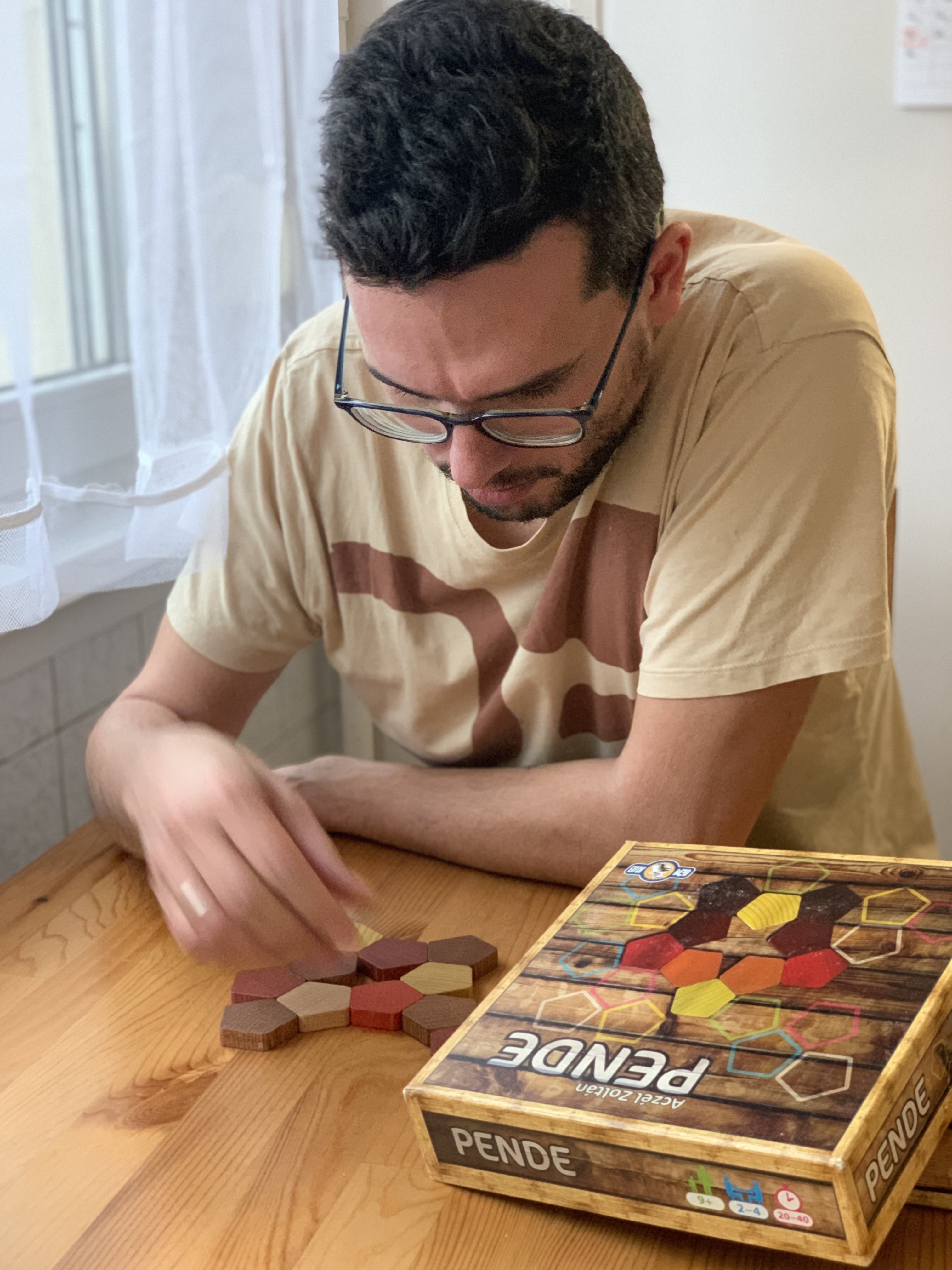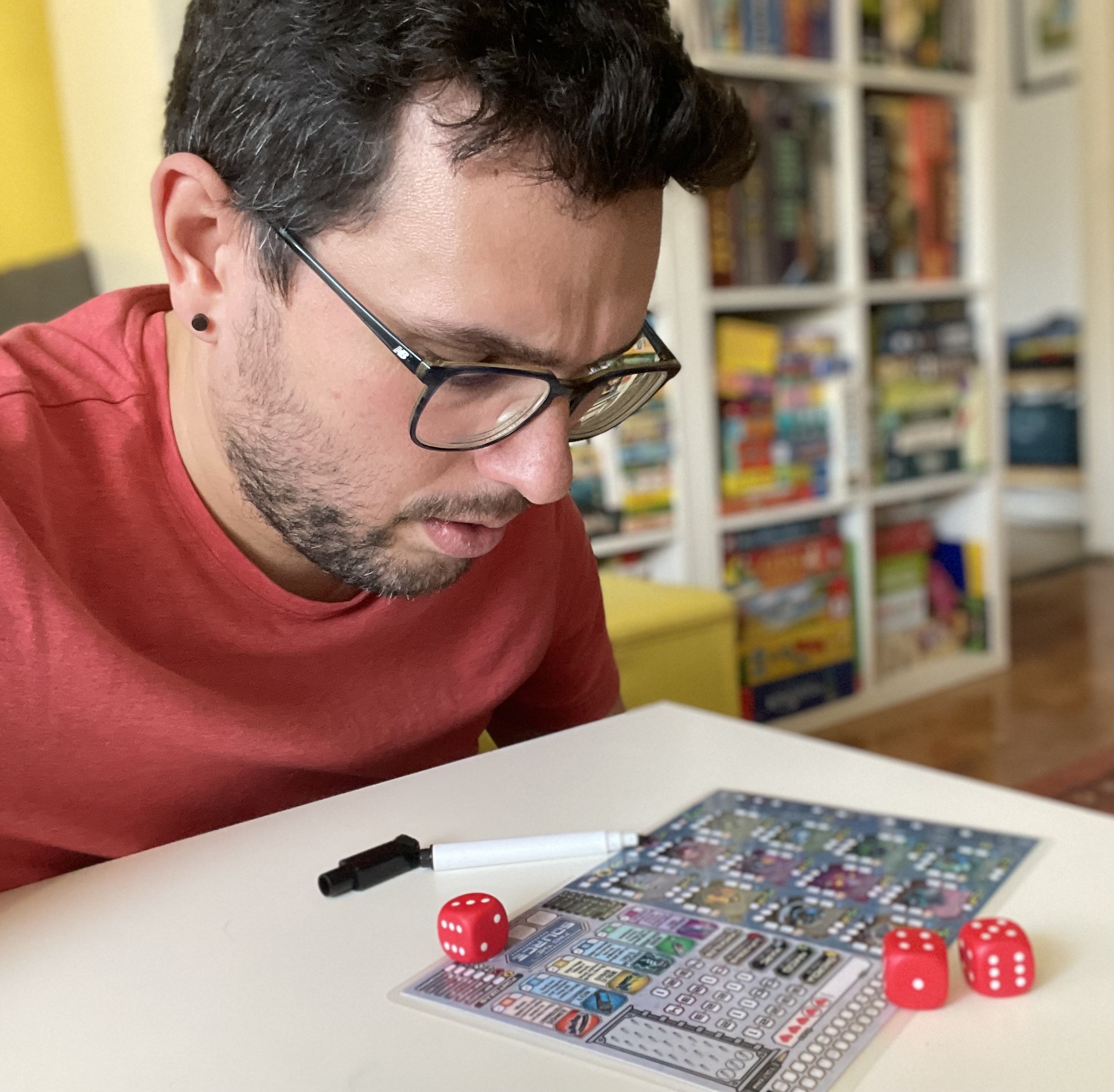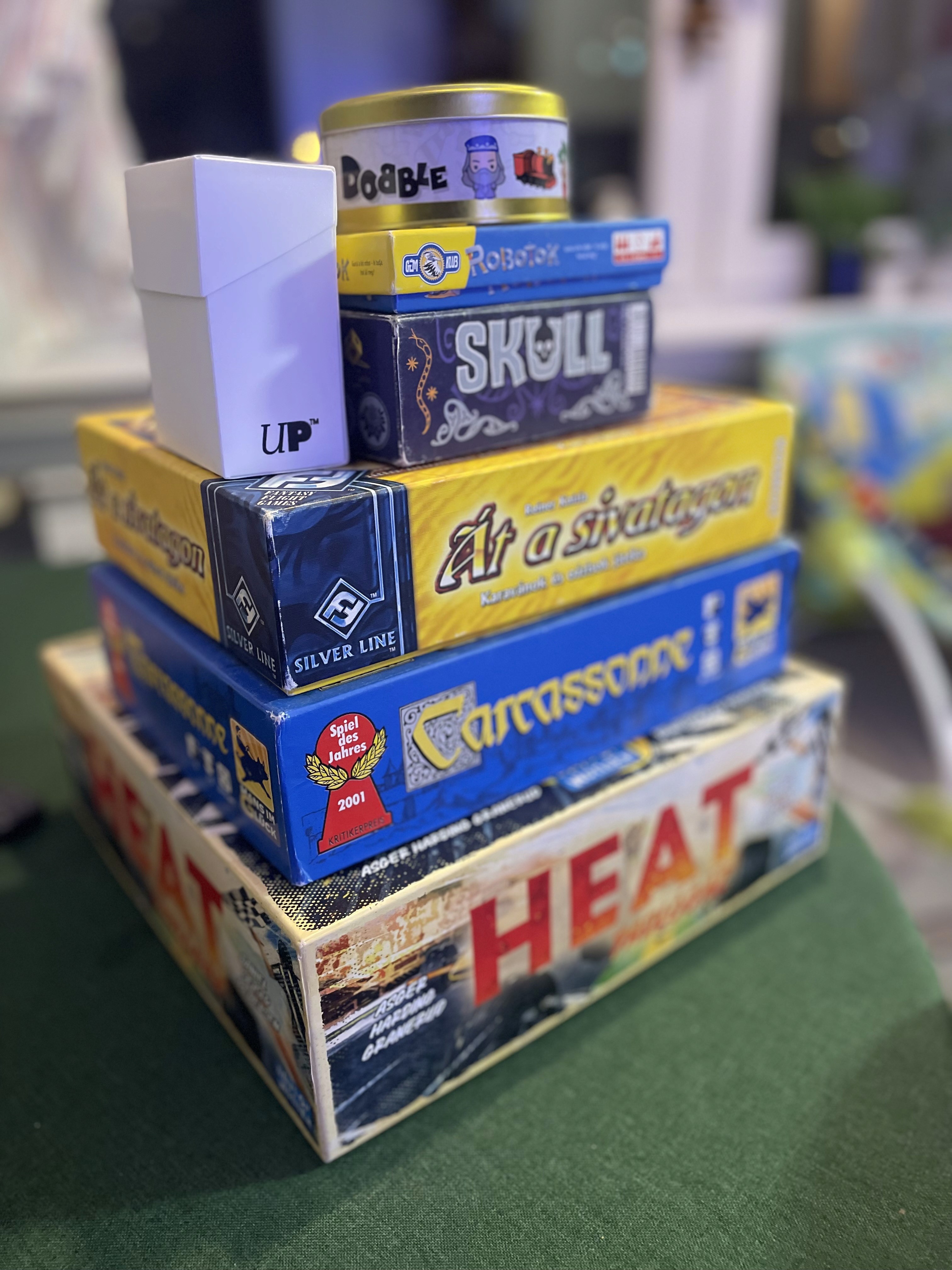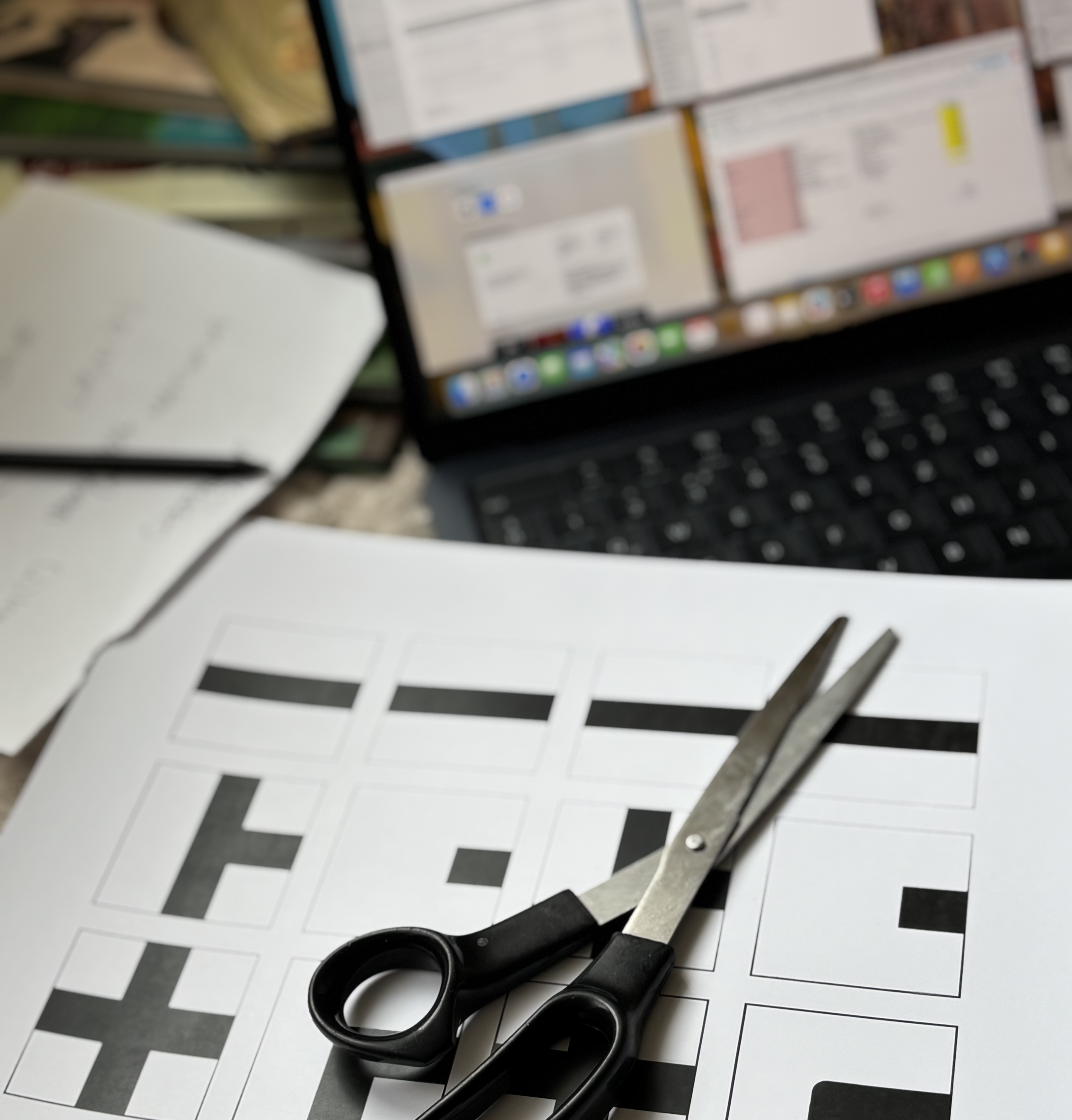Recently, during a game, one of the players got quite frustrated because I won, and they didn’t anticipate one of my moves. However, his wife—who I play with significantly more often—reassured him, saying, “Máté plays board games completely differently than others.” This comment stayed with me for a few days, and I thought about it a lot. Eventually, I decided to ask her exactly what she meant by it.

Apparently, I try out multiple strategies and easily switch between them even within a single game. I’m happy to take risks and don’t care much for playing it safe, all while it’s unclear whether I’m calculating or just going by instinct. Sometimes, I’ll explore a path purely out of curiosity, just to see if it works.
I’m a competitive type, so when I first discovered modern board games and started playing a lot, winning became very important to me. But as I got to know the board gaming world—especially after I started designing games myself—that focus somehow faded. I’m still interested in winning, and I clearly play to win, but my enjoyment of the game isn’t defined by whether I manage to secure a victory. Sometimes, I’m so captivated by a particular mechanical solution that I lose sight of the big picture and end up losing entirely.
I almost never calculate; I enjoy making decisions based on intuition. Because of this, I don’t spend much time thinking—I prefer to keep the game moving to see how things unfold. A few years ago, when József Jesztl and I were writing a book and reflecting on how players develop through gameplay, we found that understanding your own playstyle is a field where the levels of progression can be well described. Here’s how we articulated those levels:
There is no need or inclination to reflect on one’s own gameplay.
Emotional evaluation of the game emerges: “good game” or “bad game.”
Simplistic assessments appear, capturing basic qualities of actions: “I played well” or “I played poorly.”
Accurately and thoroughly analyzes their own gameplay.
Accurately and thoroughly analyzes their own gameplay and uses the insights gained during the same game.
As a player, they are capable of a complex analysis of the game, considering their own strengths and weaknesses.
How much do you reflect on your own gameplay?




